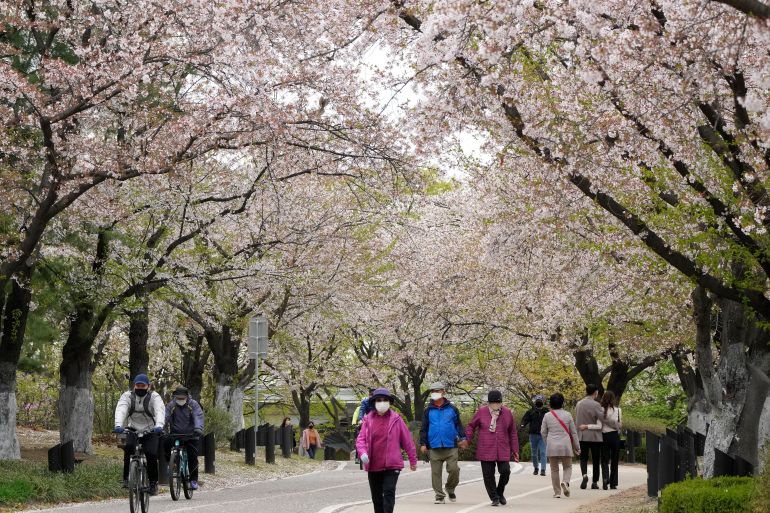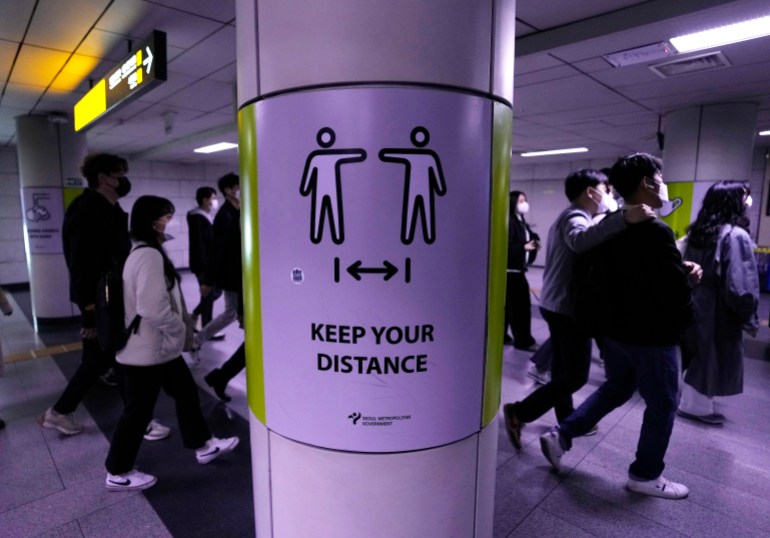South Korea to drop most COVID rules as Omicron wave ebbs
An indoor mask mandate will remain but all other health protocols will be relaxed from Monday.

South Korea has said it will lift all COVID-19 social distancing rules, except for the requirement to wear masks, marking the first time most restrictions have been lifted since the pandemic began two years ago.
The 10-person limit on private social gatherings and a midnight curfew at restaurants, coffee shops and other indoor businesses will come to an end on Monday, Prime Minister Kim Boo-kyum announced.
Keep reading
list of 4 itemsSouth Korea’s autoworkers support banning petrol cars: poll
South Korea’s bakeries, restaurants feel ripples of Ukraine war
Samsung Electronics reports 50 percent jump in quarterly profits
“The Omicron [variant] has shown signs of weakening significantly after peaking in the third week of March,” Kim said on Friday. “As the virus situation is stabilised and capabilities of our medical system are confirmed, the government [has] decided to boldly lift social distancing measures.”
People will still be required to wear masks indoors “for a considerable time ahead,” he added, but an outdoor mask mandate might be lifted in two weeks if the outbreak slows further.
The strict distancing requirements had put a huge strain on small businesses, and their removal is a sign that life in South Korea is returning to normal.

A 299-person cap on large-scale events and rallies, as well as the 70 percent capacity limit on houses of worship will also be dropped.
Much evidence suggests the risk of transmission outdoors is extremely low, and many countries, including in North America and Europe, have said masks are not needed outdoors for vaccinated people.
The move comes after South Korea appears to have passed the crest of an Omicron-driven wave, with daily cases falling to below 100,000 last week, down from a peak of more than 620,000 in mid-March.
More than 86 percent of the South Korean population of 51 million has been fully vaccinated, with most people also receiving a booster shot.
South Korea is rolling out second boosters for vulnerable populations.
Approximately 20,000 people in South Korea have died from the coronavirus – a 0.13 percent death rate, which is one of the world’s lowest.